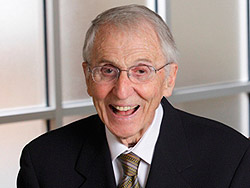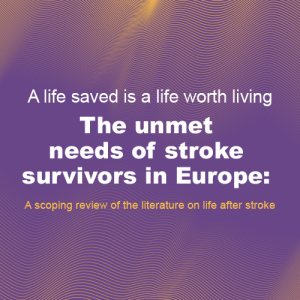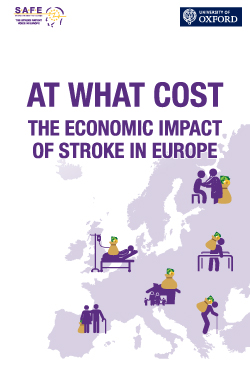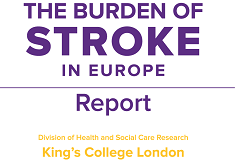Henry Barnett, MD, highly regarded neurologist, acclaimed stroke prevention researcher, and cofounder of the Robarts Research Institute in London, Ontario, Canada, died last week at the age of 94, a release from the Institute notes.
“He was a pioneer, a founder, and the father of the scientific and therapeutic phase of our field,” fellow cofounder Vladimir Hachinski, MD, Department of Clinical Neurological Sciences at the University of Western Ontario, told Medscape Medical News.As another colleague noted, Dr Barnett was never one to shy away from controversial issues. Three of his most acclaimed studies included the first large randomized trial to show that daily intake of aspirin can prevent recurrent stroke; the international extracranial-intracranial (EC-IC) bypass surgery study, which showed that the procedure was actually not as beneficial as medical treatment; and the North American Symptomatic Carotid Endarterectomy Trial (NASCET) for symptomatic carotid stenosis.
“The world has lost a founding father of modern stroke neurology. He was a giant, an expert clinician, teacher, and researcher,” Ralph L. Sacco, MD, president-elect of the American Academy of Neurology, told Medscape Medical News.
“Many of our current approaches to stroke prevention have been influenced by his work, [and] his work will live on in the many colleagues and trainees he influenced and the countless patients living free of stroke because of his tireless efforts,” added Dr Sacco, who is also executive director at the McKnight Brain Institute and chief of neurology at Jackson Memorial Hospital, Miami, Florida.
“Henry was a man of great integrity and discipline. And when he did something, it was carefully crafted and monitored,” said Philip B. Gorelick, MD, professor at Michigan State University College of Human Medicine, Grand Rapids, and medical director of the Mercy Health Hauenstein Neuroscience Center.
“He took on controversial topics, gave us answers, and changed the face of the practice of vascular neurology,” said Dr Gorelick.
“Loss of an Icon”

Dr Henry Barnett (Image credit: medscape.com)
Henry Joseph Macaulay Barnett was born in 1922 in Newcastle Upon Tyne, United Kingdom. His parents moved the family to Canada when he was a child, and he graduated from the University of Toronto in 1944. After completing his neurology training in 1950, and after 2 years at Queen Square in London, United Kingdom, and a stint as a research assistant in Oxford, he received a fellowship from the Royal College of Physicians and Surgeons of Canada.
Other career stops included 15 years as a neurologist at Toronto General Hospital, 3 years as chief of the Division of Neurology at Sunnybrook Medical Center, and 10 years as chair of the Department of Clinical Neurological Sciences at Western University and Victoria Hospital.
He then cofounded and became the first scientific director of the Robarts Research Institute in 1986.
The job “took imagination, courage, and the ability to work with a wide range of specialists and personalities,” said Dr Hachinski, who worked with Dr Barnett for 20 years. “He was charming, persuasive, and persistent. He trained dozens of individuals who have become leaders in their own right.”
“He pushed each of us to our limits of our clinical skills, and then pushed us beyond,” Michael J. Strong, MD, dean of the Schulich School of Medicine and Dentistry at Western University, noted in the release.
“While we perhaps use the term too often, his passing truly marks the loss of an icon in our clinical world. He will be greatly missed,” added Dr Strong.
Dr Gorelick was a resident when he first met Dr Barnett. The young resident was chosen to show Dr Barnett around his center when the latter came as part of an evaluation of sites for the EC-IC study. Years later, Dr Gorelick was honored to be invited by the Canadian Stroke Consortium to give its annual Barnett lecture.
“He flew in for that and we spent the evening before chatting about politics, about stroke, and about all types of issues,” Dr Gorelick told Medscape Medical News. “Although I didn’t train with him, he was willing to share his time and mentor from a distance. He was one of my favorite people.”
Long and Distinguished Career
Over his long career, Dr Barnett was an editor of Stroke, past president of the International Stroke Society, a Companion of the Order of Canada, and an inductee into the Canadian Medical Hall of Fame. He was also the first person outside of Europe to receive the Karolinska Stroke Award for Excellence in Stroke Research in 2008 and received an honorary doctor of science degree in 2012 from the University of Oxford.
But his biggest achievements may remain the three practice-changing studies he was involved with, beginning with the Canadian Aspirin Trial in 1978, which used the then-new 2-by-2 factorial design in comparing aspirin with sulfinpyrazone.
Because of the negative findings from the EC-IC bypass study, which were published in The New England Journal of Medicine in 1985, the previously widely used procedures “were almost totally stopped. Today, we know that before any conclusions can be made on the severity of an occluded carotid artery, an evaluation of alternative…blood flow supply to the brain is essential,” notes the Robarts Institute.
The NASCET trial showed that only patients with a carotid artery that was blocked by 70% or more had a significant reduction in stroke risk after undergoing endarterectomy. A 50% to 69% blockage led to just a moderate risk reduction, and patients with less than a 50% blockage showed no benefit from the procedure.
Dr Hachinski said that the rigorousness of these trials set the standard “for any subsequent claim for a drug or a procedure. He was truly a great man, not only in our field, but in the whole of medicine.”
“Henry was probably the most impactful stroke clinical trialist of the past 50 years,” added Dr Gorelick. “He knew if he applied the principals of good clinical practice and good clinical trials, he could make a huge difference. And that’s what he did.”
Dr Barnett “died peacefully in the company of family on October 20,” according to the release from the Robarts Institute, adding that the funeral home has set up a page for anyone who would like to leave online condolences.
This article was published on www.medscape.com







